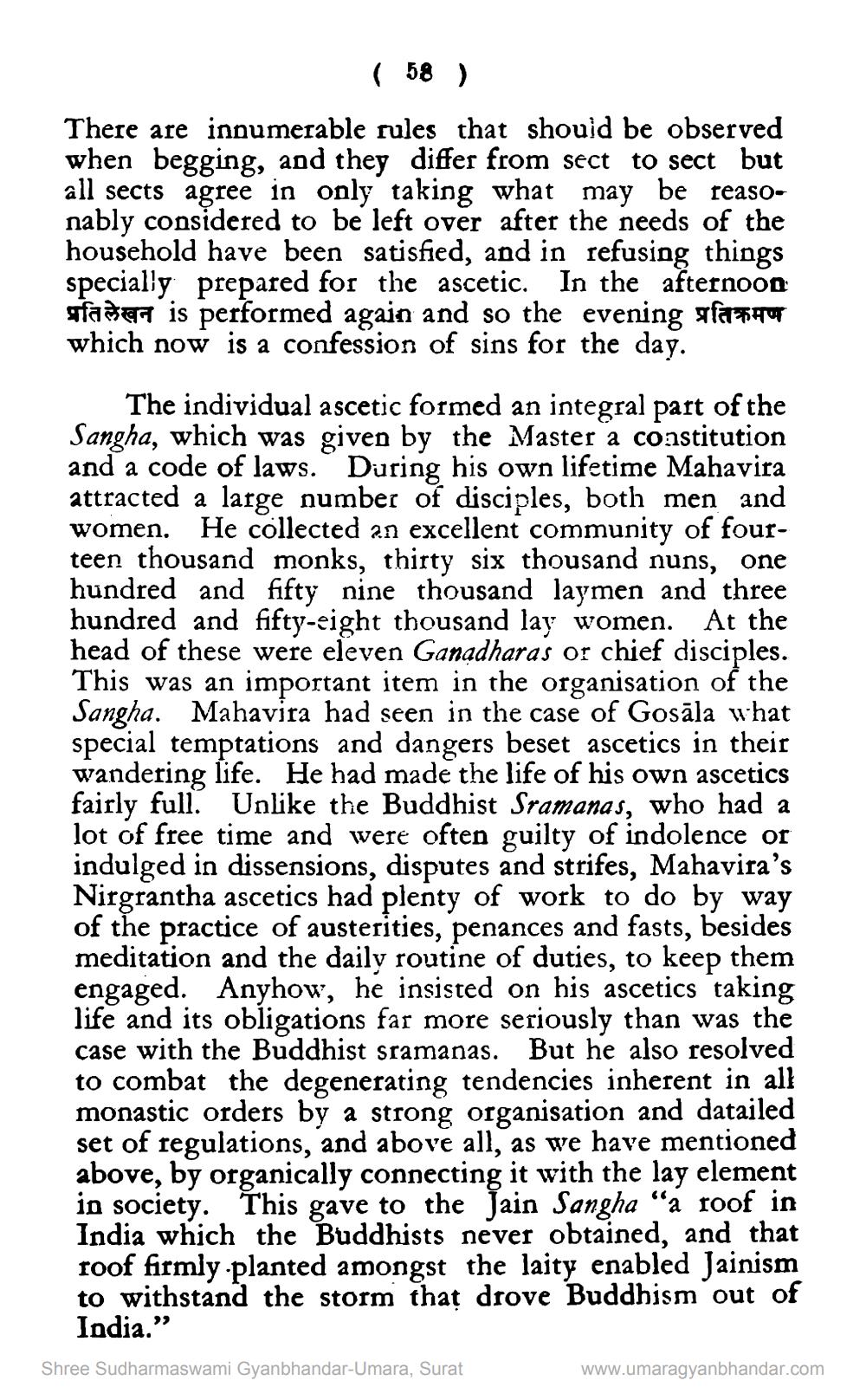________________
( 58 ) There are innumerable rules that should be observed when begging, and they differ from sect to sect but all sects agree in only taking what may be reasonably considered to be left over after the needs of the household have been satisfied, and in refusing things specially prepared for the ascetic. In the afternoon प्रतिलेखन is performed again and so the evening प्रतिक्रमण which now is a confession of sins for the day.
The individual ascetic formed an integral part of the Sangha, which was given by the Master a constitution and a code of laws. During his own lifetime Mahavira attracted a large number of disciples, both men and women. He collected an excellent community of fourteen thousand monks, thirty six thousand nuns, one hundred and fifty nine thousand laymen and three hundred and fifty-eight thousand lay women. At the head of these were eleven Ganadharas or chief disciples. This was an important item in the organisation of the Sangha. Mahavira had seen in the case of Gosāla what special temptations and dangers beset ascetics in their wandering life. He had made the life of his own ascetics fairly full. Unlike the Buddhist Sramanas, who had a lot of free time and were often guilty of indolence or indulged in dissensions, disputes and strifes, Mahavira's Nirgrantha ascetics had plenty of work to do by way of the practice of austerities, penances and fasts, besides meditation and the daily routine of duties, to keep them engaged. Anyhow, he insisted on his ascetics taking life and its obligations far more seriously than was the case with the Buddhist sramanas. But he also resolved to combat the degenerating tendencies inherent in all monastic orders by a strong organisation and datailed set of regulations, and above all, as we have mentioned above, by organically connecting it with the lay element in society. This gave to the Jain Sangha "a roof in India which the Buddhists never obtained, and that roof firmly planted amongst the laity enabled Jainism to withstand the storm that drove Buddhism out of
India.” Shree Sudharmaswami Gyanbhandar-Umara, Surat
www.umaragyanbhandar.com




